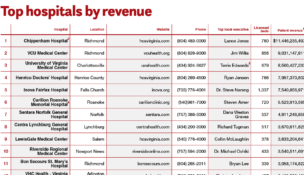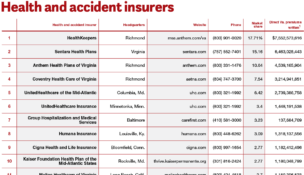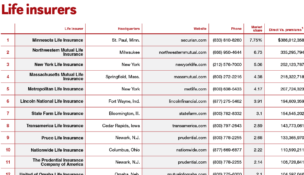Giving legislators cover
Will an Indiana-style plan offer a path to expanded coverage?
Robert Burke //July 28, 2015//
Giving legislators cover
Will an Indiana-style plan offer a path to expanded coverage?
Robert Burke //July 28, 2015//
A few months ago, Obamacare supporters in Virginia hoped a win in the U.S. Supreme Court case dealing with federal subsidies would force their opponents into accepting the 2010 law and even expand its reach.
Those now seem like innocent times. Supporters did win the King v. Burwell decision, but opponents remained dug in. “The Affordable Care Act remains deeply flawed, and today’s Supreme Court decision does not change that,” said William Howell, speaker of the Virginia House of Delegates, when the ruling was announced in late June.
Actually, the ruling did change the debate because it left in place a pillar of the law and erased a lot of uncertainty. But in an important way, such realities matter less than perception. Virginia’s option to expand Medicaid — where the real federal money is — has steadfastly been blocked by the state GOP despite the ACA’s legal victories.
So, for ACA supporters, the strategy leading up to next year’s General Assembly session is to find a way to let the losing side win a little and make the fight not seem like a fight. Some GOP-leaning states already have adopted rules that have attracted conservative support, like attaching work requirements to benefit programs that draw on Medicaid dollars under the ACA.
Whatever legislative proposals come out this year have to “give cover to people who went out on a limb and lost,” says Doug Gray, executive director of the Virginia Association of Health Plans.
It’s unlikely there will be another straight expansion push in the upcoming session like the one that Gov. Terry McAuliffe tried without success his first year. (Marketplace Virginia, a 2014 state Senate proposal backed by many business organizations, would have used Medicaid funds to subsidize private insurance premiums.) But if there’s any sales strategy that will work, McAuliffe will find it. “The governor’s been pretty clear he wants to see coverage,” says Dr. William A. Hazel Jr., the state’s secretary of Health and Human Resources. “Folks are going to have to at some point sit down and decide how we’re going to do this.”
What he means is find a way to bring in the federal tax dollars that proponents of expanding Medicaid say the commonwealth is foolish to leave on the table.
Sean Connaughton, president and CEO of the Virginia Hospital and Healthcare Association who previously was Virginia’s secretary of transportation, is one of the biggest advocates for Medicaid expansion. The VHHA cites the financial problems faced by hospitals, especially rural ones. The group said last year that about half the state’s 37 rural hospitals are operating in the red. It also says that this year and next, Virginia’s hospitals will face nearly $1 billion in combined cuts to Medicaid and Medicare.
So a partisan fight is the last thing the group wants. “What we have to do is stop focusing on politics and start focusing on providers” and the effects of funding cuts, which are especially high this year, Connaughton says. “We’re not saying we’re proponents or opponents of the Affordable Care Act; we’re just the ones who have to work with it,” he says. “We need to get folks to face the reality that this law is here to stay.”
A state study group is examining the feasibility of using a tax on hospitals, called a provider assessment, to generate money that would be matched by federal Medicaid funds. Sentara Healthcare, Carilion Clinic and Inova Health System asked the General Assembly last year for a provider assessment after it failed to approve Medicaid expansion. The legislature asked Hazel to lead a study on the issue.
Gray, the health plan association executive, says that, behind the hard line drawn by the GOP, there is support for negotiating a deal that would have some cost-share, so recipients of Medicaid coverage would have to pay something. The conservative opponents of expanding Medicaid “are completely against somebody getting Medicaid without paying anything,” he says.
The white-hot partisanship over Obamacare has made such compromise impossible for the past few years, he says. “But the fundamentals are pretty straightforward. We’re already blowing money taking care of the uninsured, who we would be able to get some funding for” through Medicaid expansion. “Isn’t it smarter to help people get coverage so they can stay healthy instead of waiting until they’re so sick, and then running up the bill?”
Hazel notes that several states recently have gotten waivers from the Centers for Medicare and Medicaid Services (CMS) to set up their own versions of Medicaid expansion. Indiana, for example, won CMS approval in January for a plan that requires premiums from the newly insured and promotes “value-based decision-making and personal health responsibility,” according to a state news release. The new plan extends coverage to 350,000 people. Republican Gov. Mike Pence called the plan “a proven model for Medicaid reform” based on the state’s Healthy Indiana Plan.
Hazel wants Virginia opponents of Medicaid expansion to come to the table with ideas. “Clearly other states have been able to do this,” he says. He also rejects the criticism that Medicaid is a poorly run program. “Medicaid is actually one of the most tightly constructed systems we have,” he says. But, anything connected to Obamacare is a target. “You’d think we could sit down and figure this out, but when you see folks in campaign mode, what are you hearing? It’s all about how bad Medicaid is.”
It’s hard to walk back some of the things that get said in a campaign. Howell just fended off a conservative opponent in a June GOP primary. The challenger accused him of trying to enable Medicaid expansion “and he had to take hard positions on that” to win, Gray says. “Being able to come back and be flexible can be hard to do.”
Howell didn’t respond to an interview request left at his district office in Stafford County.
Hazel says Howell shouldn’t fear attacks from the right because they’re unavoidable. “It doesn’t matter what he does, they’re going to come after him,” he says. “There’s no pleasing these people.”
If the most ardent opponents of more fully implementing the ACA and expanding Medicaid refuse to budge, they might prevail. But in the months to come before the next legislative session, there’ll be a lot of ideas floated.
The budget McAuliffe is drafting now, says Gray, is the first one that will really have his imprint. So in that environment he has more influence than ever and can do some horse trading on a range of policies. What exactly that might mean is unknown. “But it’s definitely being discussed,” he says.
P

















